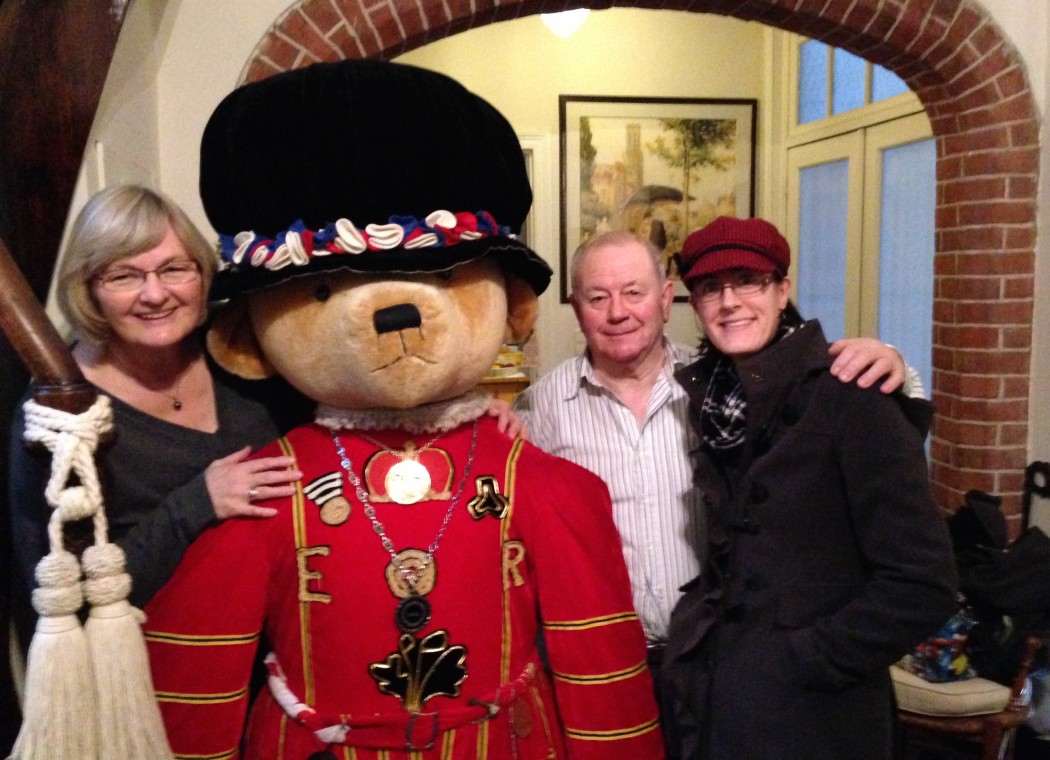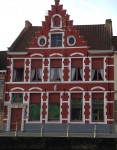Europe is a delightful place to travel. They are used to tourists. They have huge westernized hotels, small boutique hotels, small inns, guest houses, B&B’s, pensions (rooms in people’s houses), and hostels. Its tough to know where to stay in Europe, how far ahead to book and how much to spend.
First, it is imperative that you do your research. Look at travel guides such as Rick Steves travel guides per European country, Lonely Planet, Fodor’s, Frommer’s and general European travel information books like Rick Steves’, Europe Through the Back Door. As you dig deep, you will discover that the “star” rating system in Europe is different than in the U.S. While four and five star hotels are definitely the most luxurious, they are very westernized. In my way of thinking, if you only want a U.S. type hotel experience, best stay in the U.S. If you want a true European experience, often try to find a smaller, local place to stay. Two and three star hotels/inns/pensions in Europe tend to be just fine, often very charming and a whole lot cheaper.
Pensions/Inns/Small Hotels – It depends on where you are and what you want to see. Roger and I often use pensions when we go to Scotland or Ireland because cities are not necessarily the main attraction of these countries. It is the mountains, the beautiful rolling green hills, the links style golf courses, the small villages and most of all, meeting the local people. We use one pension/small hotel as home base and take day trips to the surrounding villages, golf courses, beaches, churches and castles.
If you plan to visit small medieval towns like Rothenburg, Germany or Brugge, Belgium, you will definitely want to stay at a small hotel or pension within the city walls. You will get a quaint, cozy room with character, a hearty breakfast and tons of information about the history of the town, ideas about what to do and see, great local restaurant tips and a peek into local life. This will enhance your stay. One thing you need to know, pp when booking a pension means per person per room. You may think you are paying 50 Euro per night, when you are actually paying 100 Euro for you and your partner. Email and explain what you are looking for, 1 room for 2 people for 3 nights, etc. Often English is a second language to Europeans so we make it a point to understand the total price of a night’s stay.
When you stay in pensions or small hotels recommended by Rick Steves, for example, often you may only have to book a few days ahead. This works well if you are not sure how long you want to stay in a particular town. However, if your itinerary is set, book several weeks in advance for the best selection of places to stay and to avoid having to start each day booking a hotel for the night. Do not wait until nightfall of the same day to start making reservations. You will face exorbitant room rates, especially in coastal areas like the seaside hill towns of Cinque Terra, Italy.
Hostels – Great if you are on the younger side. There are only two European hostels that I have personally stayed in and would recommend for people over 30 years old. The best is in Lake Como, Menaggio, at the cooking school/hostel, La Primula. The place is inexpensive, has adequate rooms and fabulous food! Being a cooking school, you get to try mouth-watering meals prepared by the students. The second is in Salzburg, Austria on a cliff at the top of the city, the Stadtalm Naturfreundehaus on the Mönchsberg mountain in the city center…you take an elevator to it. The panoramic views are spectacular and the hostel is friendly and inviting.
You may be thinking, “What about large cities?” Many Americans only see the big cities of Europe. If you stay in cities, you want to try to get as close to the center of the city as possible and possibly splurge on a 3-4 star hotel. One positive consideration concerning large westernized hotels; they are usually in great locations near the city center of large European cities. That allows you to spend your time seeing sights, not traveling in and out of the city. Sometimes, by the time you get a cheaper spot out of town, you end up paying more in time and travel costs going back and forth.
Staying in a small inn or pension in a city can be a bit iffy and often too far from town. Check your guidebook for suggestions, compare prices. Roger and I did stay in a small boutique hotel in Paris in the Rue Cler neighborhood as suggested by Rick Steves. It was perfect because of its many small bakeries, creperies, restaurants and proximity to the Eiffel Tower and other sites. Paris hotels can be very expensive so the neighborhood boutique worked very well. We also stayed in a pension in Vienna, which was just ok. The location was the best part about it. The owners were distant and not very friendly, unusual for pensions.
Price-wise, Northern Europe is more expensive than Southern Europe. In general, the less frills the cheaper the price. For example, in small family run hotels, rooms with en suite baths cost more as does in-room wifi. Definitely contact the hotel or pension directly. They have to pay to be included on booking websites, so if you contact them without the middle-man, they are likely to be less expensive. The same holds true if you pay with cash rather than credit card. There are even some places that are cash only. The longer you stay, the better deal you can get. I often haggle a bit about the price if we are staying 6 nights versus 1 or 2. We’ve stayed in fabulous places for a lot less money because we stayed there longer and a bit off season. Prices can really escalate in “high” season.
That said, getting a good nights sleep is key in enjoying a trip to Europe. Days can be full of dawn to dark non-stop sightseeing, and travelers need their rest. Know yourself and what it takes for you to be comfortable in a room away from home.
Roger and I always travel with the idea of having a cultural adventure. Staying in small local establishments with good reviews and reasonable prices works for us.
Enjoy Europe!







